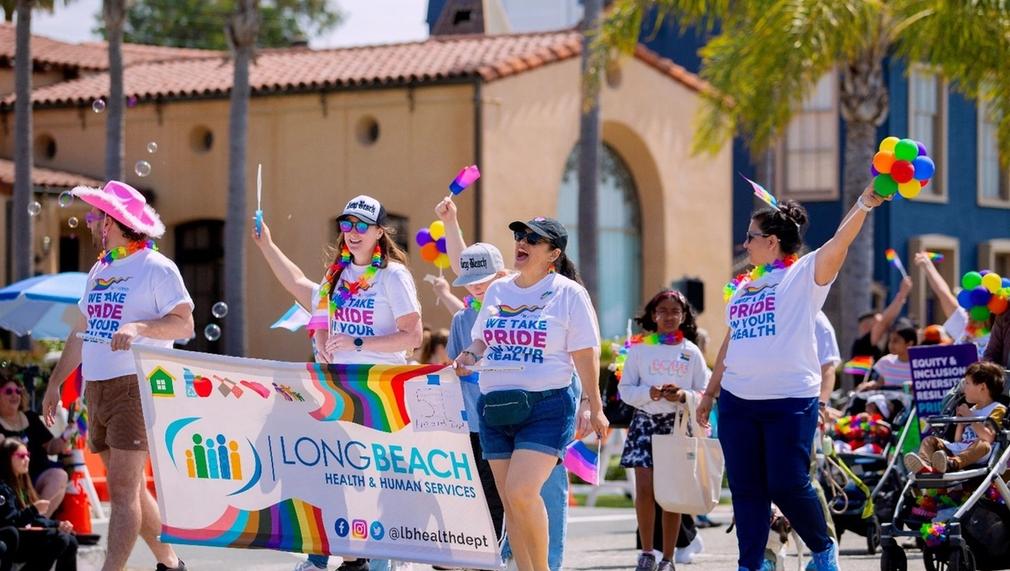Resilient Rainbow: LGBTQIA2S+ Trauma-Informed Training
Resilient Rainbow: LGBTQIA2S+ Trauma-Informed Training (Rainbow) will expand mental health access in Long Beach for LGBTQIA2S+ community members by creating an affirming and trauma-informed care system. Through specialized training, technical assistance, and direct therapy services, Rainbow seeks to improve care quality and accessibility, focusing on marginalized groups. This project will establish scalable practices for broader regional implementation, addressing the critical mental health needs identified by the community.

What is the primary issue area that your application will impact?
Mental health
In what stage of innovation is this project, program, or initiative?
Applying a proven solution to a new issue or sector (using an existing model, tool, resource, strategy, etc. for a new purpose)
What is your understanding of the issue that you are seeking to address?
Local LGBTQIA2S+ community leaders and community-based organizations confirmed that the COVID-19 pandemic negatively impacted access to mental health care for LGBTQIA2S+ individuals, who experience higher rates of mental health issues due to discrimination and stigma. Access to mental health care was reported as the highest need among LGBTQIA2S+ respondents in a DHHS survey. Thoughts of suicide during one’s lifetime were reported by 55% of transgender respondents of the California Health Interview Survey from 2019 - 2022, as compared to 16% of cisgender respondents. Similar disparities in thoughts of suicide exist between gay (31%) and bisexual (48%) respondents compared to straight respondents (14%). Transgender (65%), gay (43%), and bisexual (60%) respondents reported needing more help with mental health issues compared to cisgender (23%) or straight (21%) respondents. Rainbow responds to a community-identified need by increasing capacity of affirming and trauma-informed (TI) care.
Describe the project, program, or initiative this grant will support to address the issue.
Rainbow will expand mental health access in Long Beach to LGBTQIA2S+ community members while also creating a larger system of care that is both affirming to the community and TI care. Rainbow will achieve these two outcomes through a three-pronged approach. Firstly, Long Beach Department of Health and Human Services (DHHS) will contract with subject matter experts in the community to develop and host two levels of TI trainings for mental health community-based organizations (CBOs). The first level will set basic foundational knowledge that highlight the intersectional needs of the LGBTQIA2S+ community and TI care. The second level will train CBOs to understand that TI care is mental health prevention and a needed paradigm shift. DHHS will then contract with a local subject matter expert to provide technical assistance to mental health CBOs to implement TI systems, such as TI practices, protocols, and organizational culture. Lastly, DHHS will contract with LGBTQIA2S+ affirming clinicians to offer therapy for LGBTQIA2S+ community members. By establishing a team of vetted LGBTQIA2S+ affirming therapists, covering the cost of up to six one-hour sessions, and connecting clients to ongoing and financially sustainable mental health care, DHHS removes the most challenge barriers that people face seeking treatment: access and affordability. Care will prioritize Queer, Transgender, Black, Indigenous, People of Color.
Describe how Los Angeles County will be different if your work is successful.
Rainbow’s long-term vision is to improve care and access for LGBTQIA2S+ community members by creating a culturally responsive, inclusive system of care. Community is more likely to seek preventative care and treatment when they feel validated and respected, which leads to better health outcomes. DHHS has a strong track record of innovation with impacts across the LA region. Rainbow allows Long Beach to make necessary short-term strides in access and improved treatment through intentionally training organizations, institutions, and community members. By doing this, DHHS is stretching its reach, leading to the scalability of this project leading to the long-term vision. The lessons learned can be taken into neighboring communities and replicated across the LA region. By establishing Rainbow, DHHS positions itself for additional funding for mental health prevention through LA County’s Department of Mental Health (DMH) and other foundations, leading to expansion.
What evidence do you have that this project, program, or initiative is or will be successful, and how will you define and measure success?
To prepare for the successful implementation of this proposed program, Rainbow was modeled after the Black Mental Health Program, established in 2020, which successfully connected 338 clients who were under- and uninsured Long Beach Black residents to high-quality culturally affirming mental health services. Additionally, the LGBTQIA2S+ Health Equity Coordinator and Mental Health Program Manager will provide subject matter expertise and project management to implement this work. Quantitatively, success will be measured by the number of staff members trained, the number of mental health CBOs who receive technical assistance, and the number of clients who receive therapy. Qualitatively, success will be measured through a survey that collects feedback through open-ended questions regarding the trainings and technical assistance they received. Staff participants will report proficiency on topics discussed by the TA provider and self-efficacy to implement TI practices and protocols.
Approximately how many people will be impacted by this project, program, or initiative?
Direct Impact: 225.0
Indirect Impact: 20,000.0